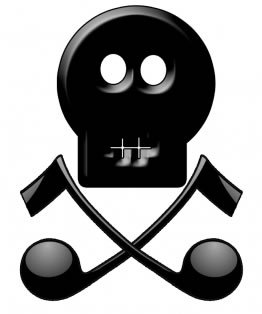The infamous saga between Jammie Thomas-Rasset and the RIAA continued today following an update in pair's third trial. Having already been found guilty of willful copyright infringement in 2007 and again during the conclusion of 2009's retrial, the third case has focused on precisely how much Thomas-Rasset should pay for her actions – something that neither party has been able to agree on over the years.
In the original trial, a jury awarded the RIAA $222,000 ($9,250 for each of the 24 pirated songs), and that fee ballooned to $1.92 million ($80,000 per track) in 2009's verdict. However, presiding judge Michael Davis intervened and cut the award to $54,000 ($2,250 per song), calling the initial sum "monstrous and shocking," noting that the reduced fee was probably still more than the court would've imposed at its own discretion.
Shortly thereafter, the RIAA offered to drop the case for a $25,000 settlement, but Thomas-Rasset declined. That prompted the recording industry to reject Davis' $54,000 award, thus birthing a third trial to re-determine the damages. In November 2010, a jury awarded the RIAA $1.5 million ($62,500 per song). Thomas-Rasset argued the fee was unconstitutional and requested that it be lowered to an amount less absurd.
Bringing the case full circle today, judge Davis has again slashed the $1.5 million punishment to $54,000. "The Court concludes that an award of $1.5 million for stealing and distributing 24 songs for personal use is appalling. Such an award is so severe and oppressive as to be wholly disproportioned to the offense and obviously unreasonable," Davis said, noting that $54,000 is the maximum award consistent with due process.
"This reduced award is punitive and substantial. It acts as a potent deterrent. It is a higher award than the Court might have chosen to impose in its sole discretion, but the decision was not for this Court to make. The Court has merely reduced the jury's award to the maximum amount permitted under our Constitution," he continued. "Although Thomas-Rasset played a role in the web of online piracy, she played a minuscule role."
Considering Thomas-Rasset's previous refusal to pay $25,000 and the RIAA's initial denial of the lesser $54,000 award, you can bet the battle will continue. In fact, an RIAA spokesperson told Ars Technica that it disagrees with the decision and is weighing its options. Meanwhile, Kiwi Camara, Thomas-Rasset's attorney, said that he's sure the recording industry will appeal and he's already prepared to file a cross-appeal as well.
